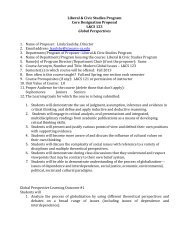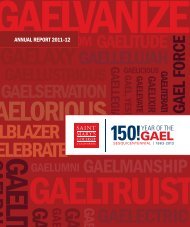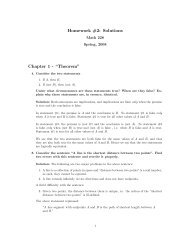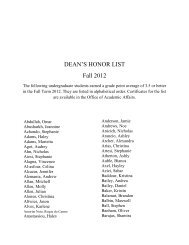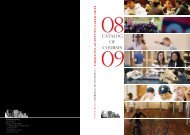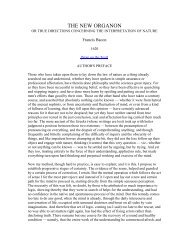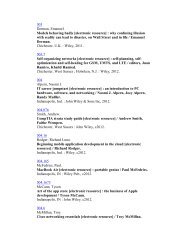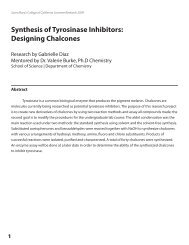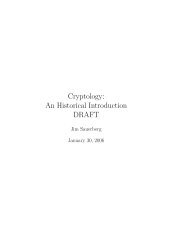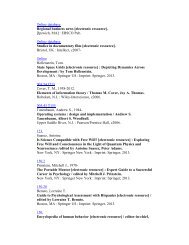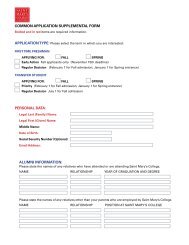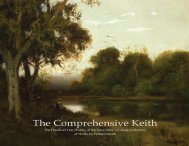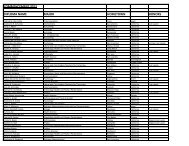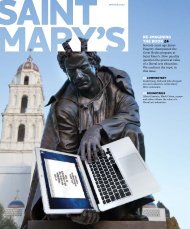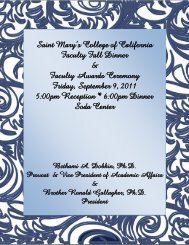Syllabus - Saint Mary's College of California
Syllabus - Saint Mary's College of California
Syllabus - Saint Mary's College of California
Create successful ePaper yourself
Turn your PDF publications into a flip-book with our unique Google optimized e-Paper software.
and 20th century United States; the late Zhou in China; the contemporary North Atlantic;<br />
colonial Africa) (the question being is this class universally true throughout human<br />
existence)<br />
Learning Outcome #2: In this course students will come to understand theories <strong>of</strong><br />
human behavior, relations, culture, or institutions; or interpretations <strong>of</strong> historical<br />
causation and change<br />
Elucidation:<br />
Courses that satisfy this learning outcome will introduce at least one theory <strong>of</strong> human<br />
behavior, human interaction, institutional activity, or culture. The course syllabus will<br />
identify which theory or theories will be introduced and students will complete at least<br />
one assignment or provide written evidence in an examination that demonstrates an<br />
understanding <strong>of</strong> the theory or theories.<br />
Alternatively, courses will present one or more interpretations <strong>of</strong> historical events<br />
with an emphasis on their cause(s) and effect(s). The syllabus will clarify which<br />
interpretation(s) will be introduced and at least one assignment or written/oral response<br />
during examination will require students to demonstrate their comprehension <strong>of</strong> historical<br />
causation and change.<br />
Revised<br />
10/2011<br />
Learning Outcome #3: In this course, students will learn how to collect evidence about<br />
the social world using social science or historical methodology.<br />
Elucidation:<br />
In order to sufficiently cover this learning outcome a course must 1. provide a basic<br />
explanation <strong>of</strong> the methodological approaches used to collect data in the discipline. 2.<br />
Ask students in at least one assignment to locate, collect, and process data from primary<br />
or secondary sources and to use that data to advance a disciplinary argument.<br />
Learning Outcome #4: In this course, students will learn how to interpret evidence<br />
about the social world using social science or historical methodology.<br />
Elucidation:<br />
It follows from learning outcome #3 that students be able to understand and explain<br />
how data that are collected can be interpreted within the framework <strong>of</strong> different<br />
methodological approaches that might have been used to collect the data. Interpretation<br />
<strong>of</strong> the data will allow students to defend the disciplinary argument that they had advanced<br />
in learning outcome #3.



